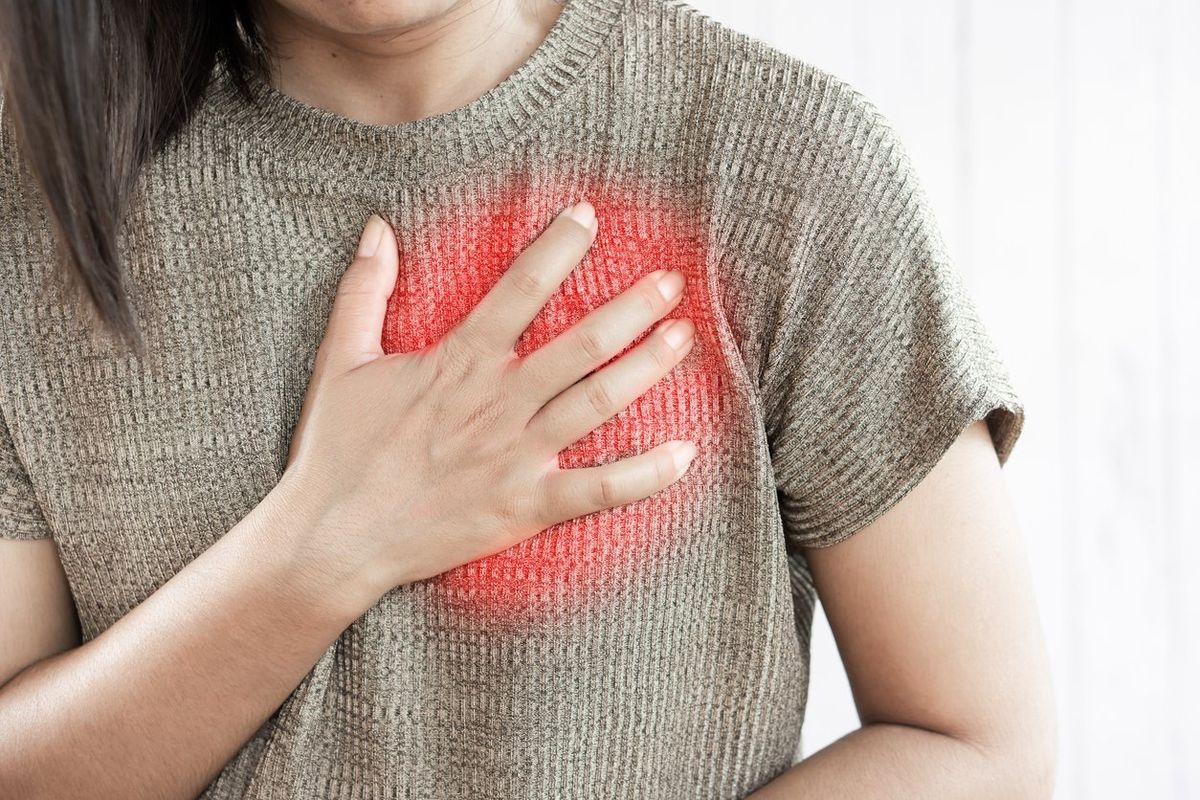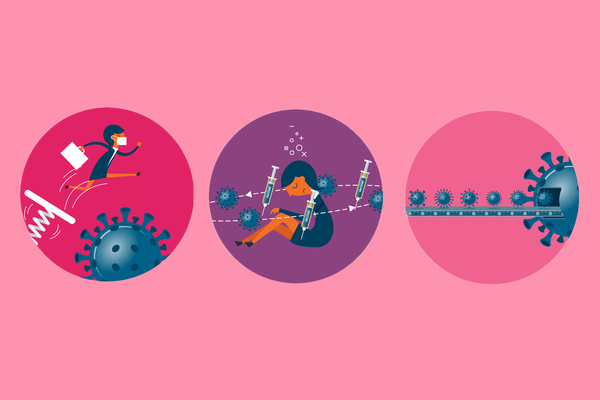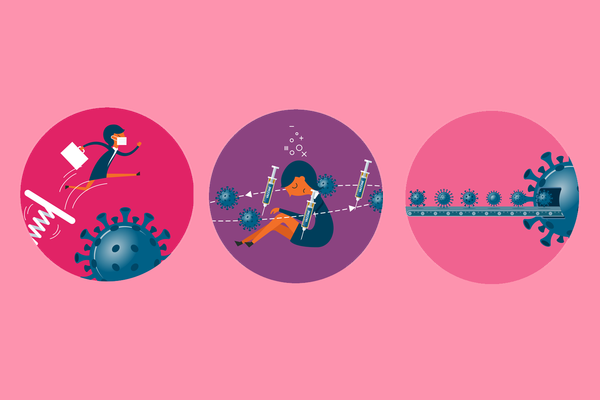You’ve probably heard of the human papillomavirus (HPV) and that it can cause cancer. It’s true — almost all cervical cancer cases in the U.S. are caused by high-risk strains of the virus. But growing research is finding an equally scary link between HPV and cardiovascular disease — the number one killer of women and people assigned female at birth in the U.S.
In a recent study of more than 163,000 Korean women, the women who tested positive for high-risk HPV (the strains that cause cancer) had a significantly higher risk of dying from cardiovascular disease compared to women who did not have HPV.
The study followed women with no history of heart disease for up to 17 years. The women with high-risk HPV were four times more likely to die from heart disease and six times more likely to die from stroke. And women living with obesity and high-risk HPV had even higher numbers.
Previous research has linked HPV to clogged arteries in women, but this is the first study to track the association between high-risk HPV and heart-related death.
A smaller 2019 study of perimenopause, menopause and postmenopausal women, found that the women with HPV were more likely to have coronary artery disease compared to the women who did not have HPV.
One theory is that the virus may create inflammation and block blood vessels and inflammation overall may be a risk factor for cardiovascular disease.
Heart disease in women
About 1 in 5 women die from heart disease each year. Blocked blood vessels, which can lead to a build-up of plaque in the arteries, can be particularly dangerous for women.
Research shows women are more likely to have coronary microvascular disease (CMD) compared to men. The heart condition causes squeezing and chest discomfort caused by problems in the network of tiny blood vessels in the heart. This can lead to heart attack, heart failure and death.
Read: Why Don’t Women Get the Same Treatment for Heart Disease as Men? >>
Overall, risk factors for heart disease include:
- Diabetes
- High blood pressure
- Depression
- Stress
- Smoking
- Rheumatoid arthritis and other inflammatory conditions
- Family history
- Lack of physical activity
- Living with overweight or obesity
Some women have no symptoms of heart disease. And symptoms of heart disease in women can be different from symptoms of heart disease in men.
In addition to pain or heaviness in the chest, symptoms can include pain in the jaw, neck, throat, arm, shoulder, back and upper abdomen.
HPV and women
Experts say pretty much everyone who is sexually active will have HPV at some point in their lifetime — and HPV poses a big risk to women because high-risk HPV can cause cervical cancer, the fourth most common cancer in women worldwide. HPV can also cause other cancers, including throat, anal, vaginal, and head and neck cancers.
Watch: Congressional Briefing: Preventing HPV-Related Cancers Through Vaccination and Screening >>
Reduce your risk for HPV and heart disease
Luckily, there are steps you can take to protect against getting cancer from HPV. Routine screening, which includes HPV tests, Pap tests, or combination tests, can help you catch precancerous cells, which means you can stop cancer before it starts, or catch it early, when it’s easier to treat.
Read: Questions to Ask Your Healthcare Provider About Cervical Cancer Protection >>
Second, you can get vaccinated against HPV. While the vaccine is ideally given to young teens, adults up to age 45 still may be able to get the vaccine. If you have not gotten the HPV vaccine, your HCP can help you decide if you’re a good candidate.
Watch: How to Talk to Your Healthcare Provider About Getting the HPV Vaccine as an Adult >>
Regular visits to your HCP are also part of reducing the risk for heart disease. Talk to your HCP about tests for blood pressure, cholesterol and diabetes. High blood pressure can lead to many serious health conditions, including stroke.
Outside of your HCP, incorporating healthy habits can also help reduce the risk. These can include:
- Get at least 150 minutes of exercise a week
- Make healthy food choices, like limiting processed foods and red meats, and eating plenty of fruits, vegetables and whole grains
- Limit your alcohol intake (if any)
- Manage your stress
- Don’t smoke
Both HPV and heart disease can have serious — even deadly — consequences for women’s health. But you can take steps to reduce your risk for cervical cancer and protect your heart.
- Cervical Cancer Screening Is Essential, but Access to Good Treatment Can Be the Difference Between Life and Death ›
- Congressional Briefing: Preventing HPV-Related Cancers Through Vaccination and Screening ›





